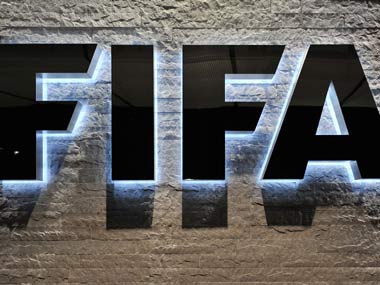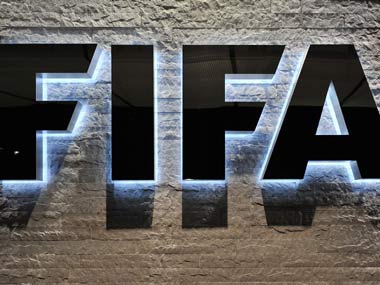A study conducted by Play the Game/Danish Institute for Sports Studies, and published in October 2015, found that on the basic criterion of good governance, Fifa ranks second among the 35 Olympic international sports federations with a Sports Governance Observance index of 67.8 percent. Yes, the same Fifa that was raided by the police for the second time on Wednesday, resulting in more arrests of its officials. The same Fifa against whose officials US government officials revealed a new indictment that alleges “an even more extensive network of criminal behaviour across dozens of countries and that involved some of the most powerful people in international soccer,” according to The New York Times. Sixteen new defendants have been charged with crimes including “wire fraud, money laundering and racketeering”. Among them are “a former President of the Honduras, a judge on the Constitutional Court of Guatemala and the current and former presidents of Brazil’s national soccer federation.” [caption id=“attachment_2531662” align=“alignleft” width=“380”]  Representational image. Getty Images[/caption] Lest we forget, current president Sepp Blatter and Uefa president Michel Platini — the man widely tipped to be his eventual successor — are facing potential life bans from Fifa for an allegedly improper payment of GBP 1.35 million (over $2 million) from Blatter to Platini in 2011. The index — used in the Play the Game/Danish Institute for Sports Studies report — measures four criteria: Transparency, democratic accountability, checks and balances, and solidarity. According to the report, “medium-sized federations should be expected to have an SGO index close to 75 percent, while large federations should achieve a score higher than 75 percent. The only federation to exceed 75 percent was the Fédération Equestre Internationale, which received a SGO index of 75.6 percent. The combined index for all 35 federations was 45.4 percent with 26 federations, (74 percent) scoring less than 50 percent. A failing grade, if you will. According to the report, “while having a high SGO index does not rule out the occurrence of corruption, it can be expected that the absence of basic criteria of good governance increases the likelihood of opportunistic and unethical behaviour.” Talk about stating the obvious. In the case of Fifa, the report cites its internal audit and ethics committees among its strengths but that hasn’t prevented a significant number of its members from indulging in corruption. If anything, it indicates that having sound principles of governance on paper are meaningless when there is no institutional will to enforce them. Under Blatter, Fifa did its best to brush its own ethics investigation into the 2018 and 2022 World Cup bids under the carpet by refusing to make it public. The report is very clear about the cause of the breakdown in governance: “the commercialisation of sport has been at the basis of significant failures of governance”. The scandals at Fifa and IAAF (which broke after the report was published) are currently in the headlines, but the report provides some lesser known examples to buttress its case. They do not make for pretty reading: “Mexican Ruben Acosta allegedly got away with at least $33 million in personal commissions in the last decade of his 24 years reign as president of the International Volleyball Federation (Hoy, 2005). “Hassan Moustafa, the Egyptian President of the International Handball Federation, received over 300,000 euro in travel reimbursement without presenting receipts. He also established a salary raise (from a part-time fee of 30,000 Swiss Franc — just over $30,000 — to an annual 500,000 Swiss Franc — around $500,200 — as a full-time employee) and his fellow board members (a 500 percent increase) so that they receive more than the International Handball Federation’s total development aid. Moreover, he allegedly secured a personal contract worth 602,000 euro with German sports marketing company Sportfive, which later acquired the IHF broadcasting rights (Ahl, 2009; 2010; 2013). “Finally, in the International Weightlifting Federation, Hungarian Tamas Aján, who has been president for 15 years, failed to account for the disappearance of an estimated $5 million of IOC grants from two Swiss bank accounts (Hartmann, 2013).” Sporting bodies have largely been able to get away with this kind of behaviour because they have loudly and persistently voiced their right to autonomy and resisted any attempts at oversight from governments. The large sums of money now flowing into sports has created temptation they have been unable to resist, especially when it appears that everyone is doing it. It is only when law enforcement agencies have moved against them, the prime examples being Fifa and the BCCI, that these organisations have made attempts at reform. Corruption, then, is the greatest challenge facing international sports in the 21st Century, and the greatest challenge facing those who wish to reform these sporting bodies. Overcoming it is not only far from easy, it is far from certain.
It is only when law enforcement agencies have moved against them, the prime examples being Fifa and the BCCI, that these organisations have made attempts at reform.
Advertisement
End of Article


)

)
)
)
)
)
)
)
)



